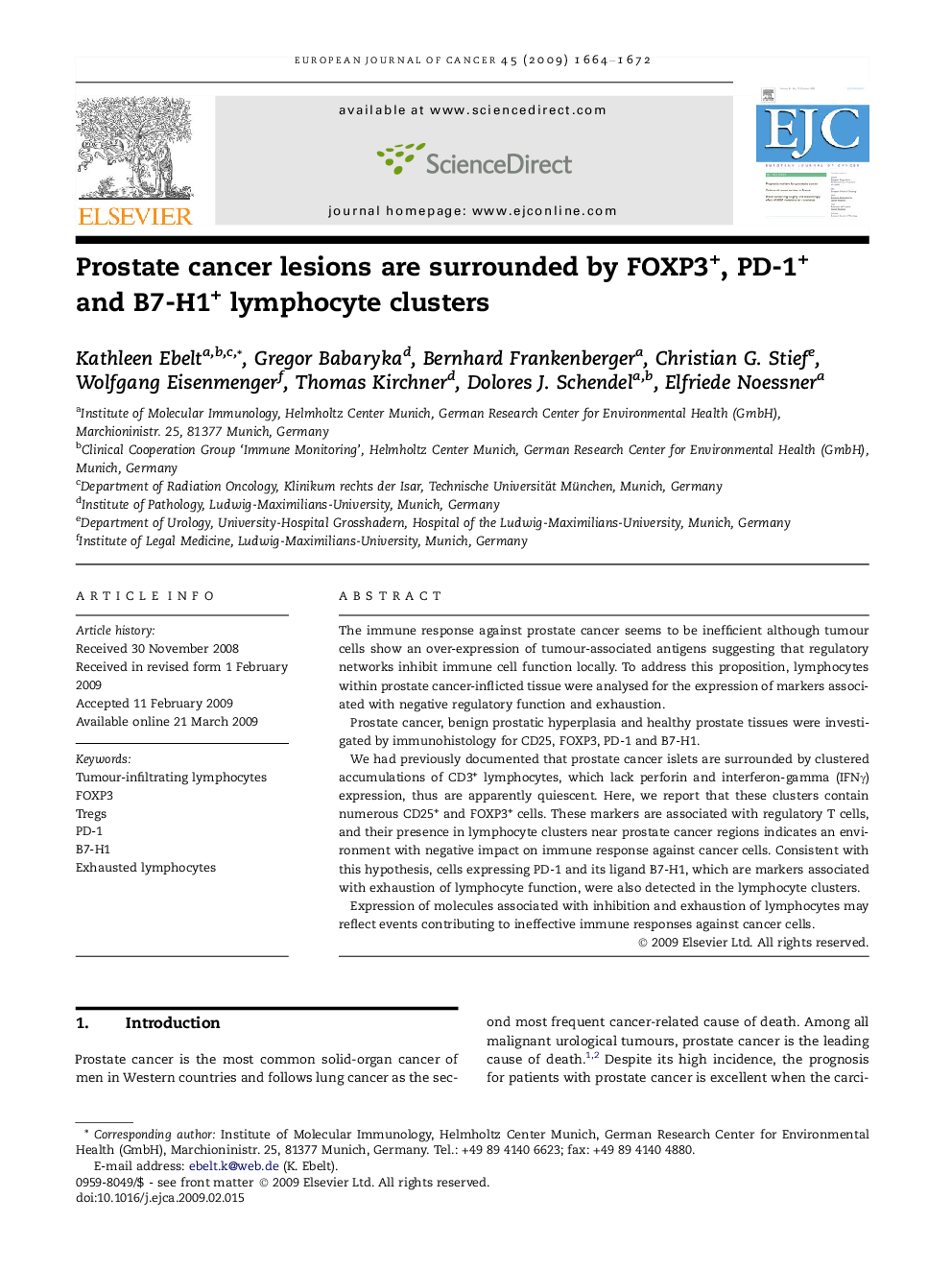| Article ID | Journal | Published Year | Pages | File Type |
|---|---|---|---|---|
| 2123680 | European Journal of Cancer | 2009 | 9 Pages |
The immune response against prostate cancer seems to be inefficient although tumour cells show an over-expression of tumour-associated antigens suggesting that regulatory networks inhibit immune cell function locally. To address this proposition, lymphocytes within prostate cancer-inflicted tissue were analysed for the expression of markers associated with negative regulatory function and exhaustion.Prostate cancer, benign prostatic hyperplasia and healthy prostate tissues were investigated by immunohistology for CD25, FOXP3, PD-1 and B7-H1.We had previously documented that prostate cancer islets are surrounded by clustered accumulations of CD3+ lymphocytes, which lack perforin and interferon-gamma (IFNγ) expression, thus are apparently quiescent. Here, we report that these clusters contain numerous CD25+ and FOXP3+ cells. These markers are associated with regulatory T cells, and their presence in lymphocyte clusters near prostate cancer regions indicates an environment with negative impact on immune response against cancer cells. Consistent with this hypothesis, cells expressing PD-1 and its ligand B7-H1, which are markers associated with exhaustion of lymphocyte function, were also detected in the lymphocyte clusters.Expression of molecules associated with inhibition and exhaustion of lymphocytes may reflect events contributing to ineffective immune responses against cancer cells.
